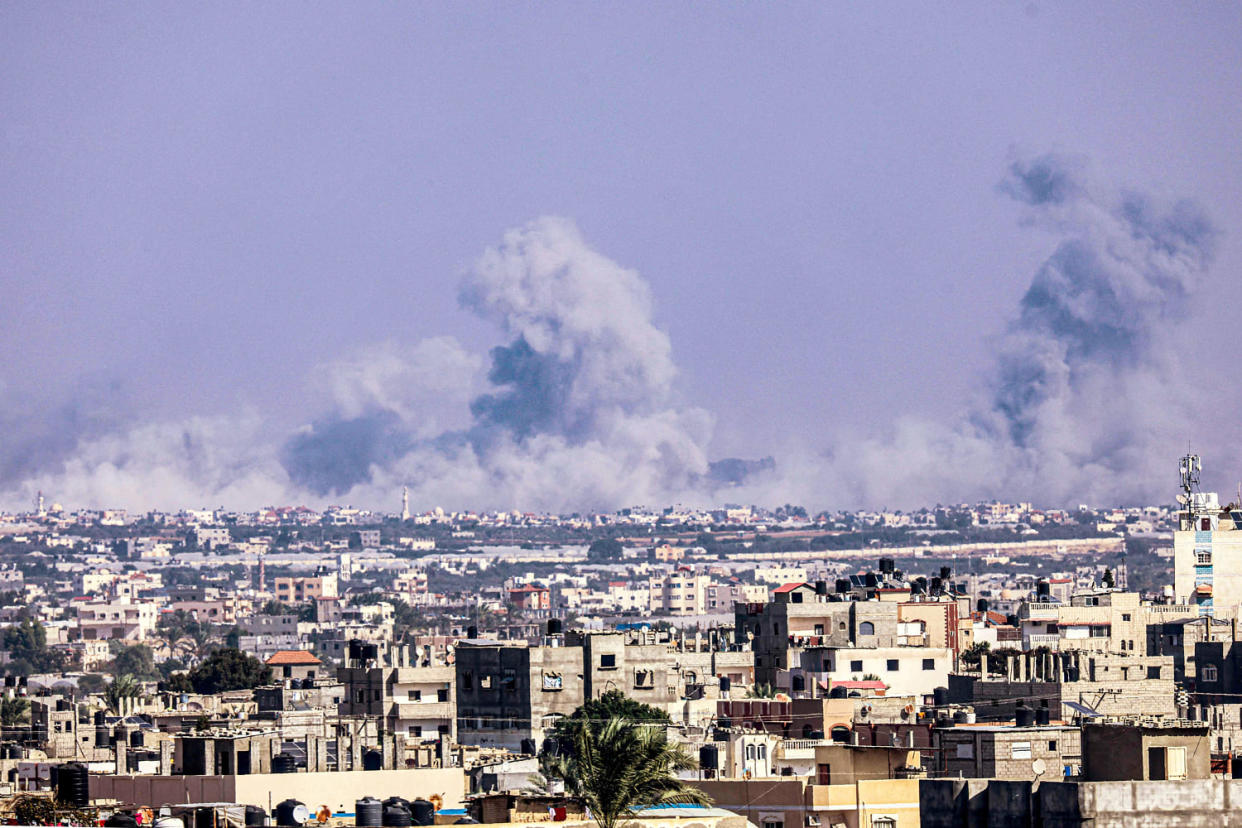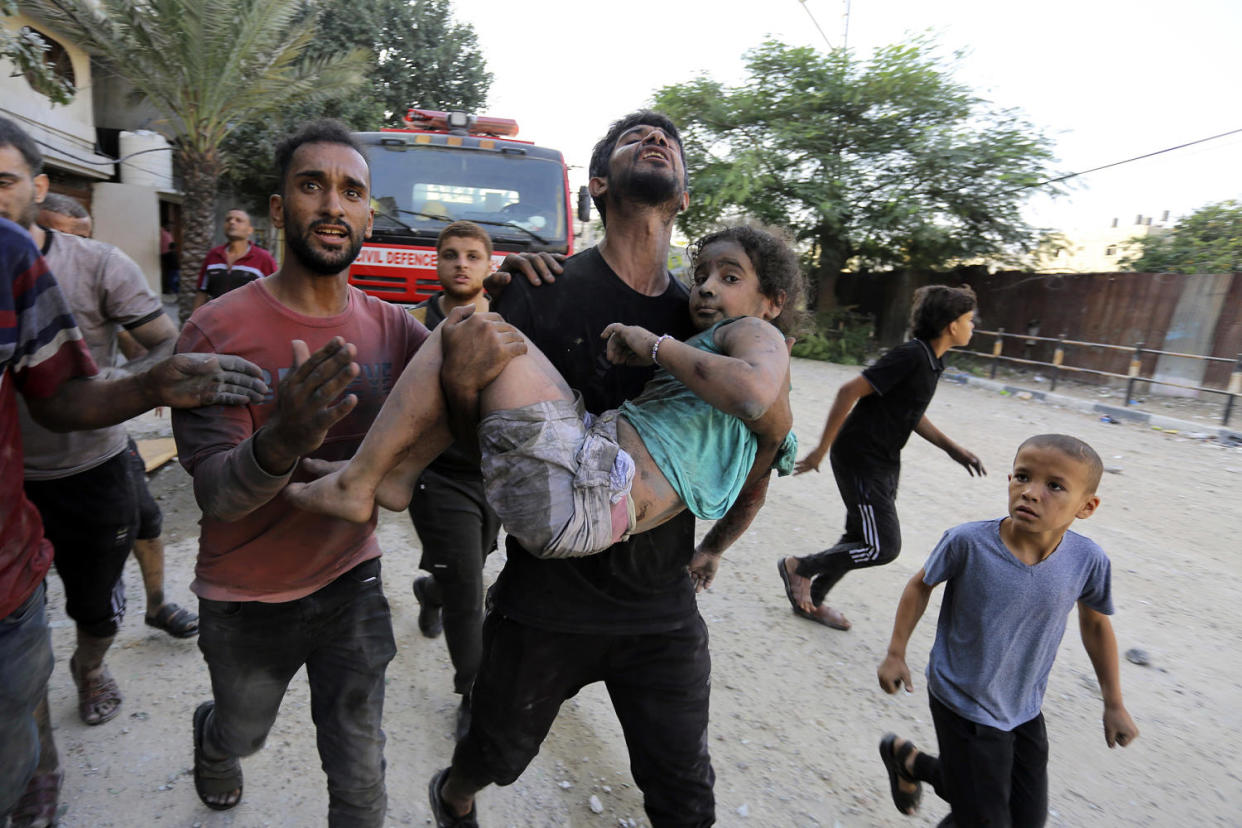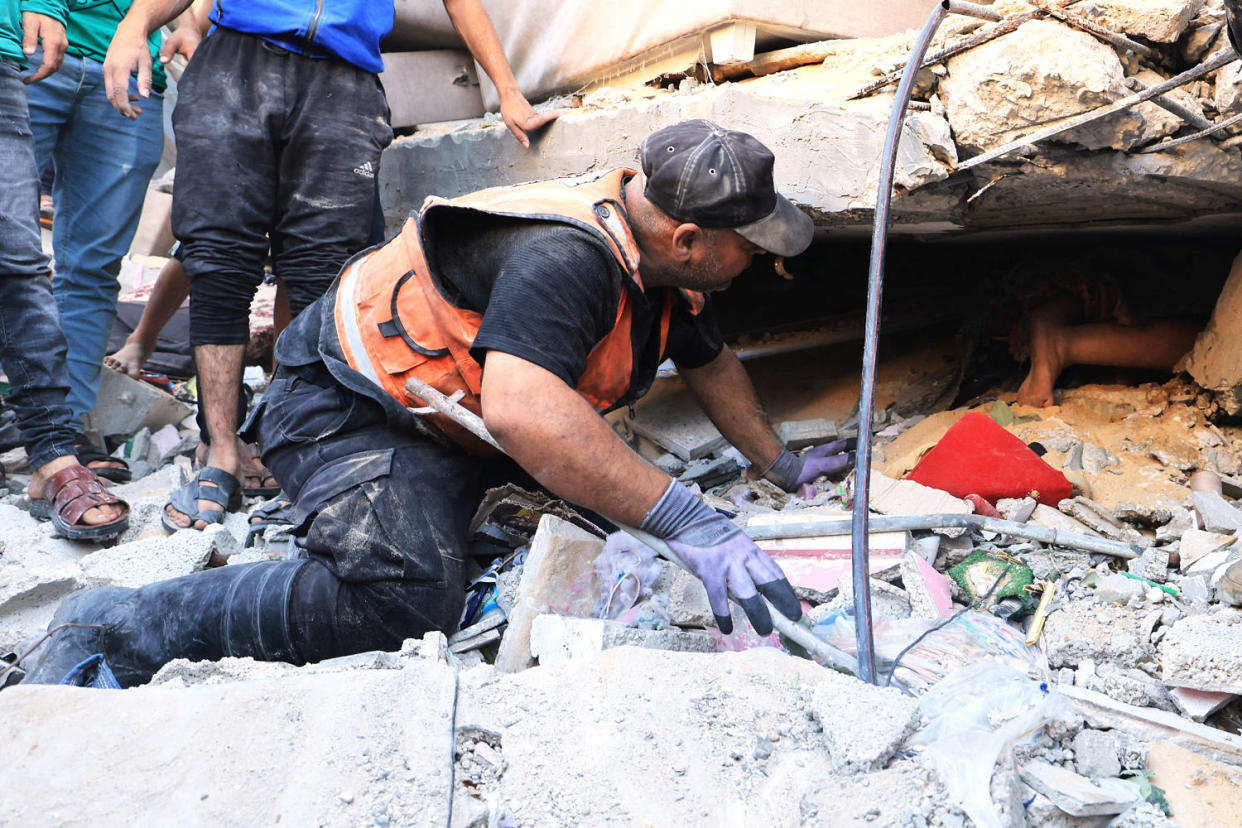Israel says it wants to destroy Hamas, but its Gaza assault could radicalize a new generation
TEL AVIV — Israel’s ferocious bombardment of the Gaza Strip will create an incubator for a new generation of terrorists, some extremism experts say, as thousands of young people who have lost families and homes risk being radicalized by the war and its likely chaotic aftermath.
Israel says it wants to destroy Hamas, the terrorist group that carried out the massacre of more than 1,400 people and the kidnappings of 240 others on Oct. 7, according to official estimates. But Israel’s retaliatory bombing campaign has killed thousands of civilians, many of them women and children; reduced swaths of the tiny, crowded enclave to rubble; and prompted international outcry over the ensuing humanitarian crisis.
Not only have U.S. officials warned that the reaction could inspire attacks on the West, but some experts also say Israel’s retaliation, too, is only likely to beget more violence.
“The cycle of radicalization cannot be thwarted by operations like the one Israel is carrying out, which only makes the cycle deeper, wider and uglier,” said H.A. Hellyer, a senior associate fellow at the Carnegie Endowment for International Peace, a Washington, D.C., think tank. He said the conflict risks creating “Hamas 2.0” or perhaps “worse, from another group we’ve not seen yet.”
That view is echoed by some who live and work in the troubled land.
“You’re going to radicalize more people,” said Hanan Ashrawi, a veteran Palestinian politician and negotiator based in the occupied West Bank. “And you’re not only going to increase the trauma — you’re going to increase the demand for revenge.”

In Israel, Tania Hary, the executive director of the nonprofit organization Gisha, which aims to protect Palestinians’ freedom of movement, says Gaza is like “any place in the world” in that “when you have such a situation of injustice, poverty and trauma, it’s a recipe for instability.”
The bombardment and the humanitarian crisis in Gaza are so horrific that “there is no post-trauma,” Hary said. “It’s just a continuous kind of trauma that people are living under.”
On top of the outbursts of violence, the lack of a political solution to Palestinian desires — from the foundation of an independent state to the establishment of a capital in East Jerusalem — have also fed Hamas’ power base, experts warn.
“You’re dealing with a population here that has very, very few options,” said Raffaello Pantucci, a senior fellow at the International Centre for Political Violence and Terrorism Research at the S. Rajaratnam School of International Studies, a think tank in Singapore.
He is among those who believe any solution to the cycle of violence would require an “enormous overhaul of leadership on both sides” and the election “of a group of people who decide that, actually, a perpetual cycle of violence isn’t the way forward.”
‘Seeing your family exterminated’
It is a well-established idea in radicalization studies: A state attempts to wipe out a militant group, only for the ensuing civilian collateral damage to become the best recruitment tool for that organization or ideal.
A recent example is the U.S.-led invasion of Iraq in 2003, which experts argue ultimately spawned the Islamic State, or ISIS.
ISIS is a different group from Hamas, though Israel has sought to equate them. ISIS rejected politics and nation-statehood in favor of a global, apocalyptic war against “apostates.” Hamas is a terrorist group and calls for the destruction of the state of Israel, but it also has roots in international political Islam and has participated in elections.
Hamas’ brutal terrorist attacks last month, an even more barbaric departure from its previous tactics of antisemitic violence and rhetoric, surprised even those who know the group well. And those actions “will serve as an inspiration the likes of which we haven’t seen since ISIS launched its so-called caliphate years ago,” FBI Director Christopher Wray warned last week at a Senate hearing.

The fear of what might come next is also why the U.S. has been so worried about Israel’s apparent lack of a post-Hamas plan, said Peter Neumann, a professor who specializes in terrorism and radicalization at King’s College London.
“From the Americans’ own experience, in places like Afghanistan and Iraq and even Libya, they know that whenever you remove one source of power and leave a vacuum, bad things will often come out of that vacuum,” Neumann said.
That threat presents a dilemma for Israel. Most people here, including many on the left, are demanding that Hamas be eradicated or at least defanged to the extent that it can never carry out another atrocity like the one on Oct. 7.
“I see what’s happening in Gaza, and it’s tearing my heart. It’s like looking into the gates of hell,” said Naama Bar-Or, 37, a Tel Aviv museum worker who wants a cease-fire, but only to secure the release of the hostages. After that, she doesn’t “know if there’s any other way” to defeat Hamas aside from the type of military operation now underway.
“I don’t agree with the killing of civilians, absolutely,” she said. But “this is my people, and I care about my people. When somebody wants to kill me, I would rather kill them first.”
It’s difficult to find a Jewish Israeli here who opposes the bombing of Gaza outright. And even advocates of such a position admit their cause is a fringe one.
A poll by the newspaper Maariv found last week that 49% of Israelis favored waiting to launch a full-scale ground invasion, which the paper attributed to the growing support for freeing the roughly 240 hostages held by Hamas. But support for the military campaign itself is seemingly so ubiquitous that a question about it is rarely, if ever, asked in such opinion surveys.
The problem with the current bombing and ground campaign in Gaza, the radicalization experts’ argument goes, is that it might actually increase the risk to Israel and other countries in the long run.
“It’s a horrible, horrible catch-22 situation, and frankly I just don’t know what the way out is,” said Pantucci, of the Singapore think tank.
Some U.S. lawmakers and former military officers — who witnessed U.S. missteps in Iraq and Afghanistan — say Israel should scale back its massive bombing of Gaza and pursue a more calibrated, surgical campaign. That alternative to a massive ground invasion could limit civilian casualties and lower the risk the conflict will spread.

The idea of defeating Hamas might be “emotionally satisfying,” said Lt. Col. Frederic Wehrey, a senior fellow at the Carnegie Endowment for International Peace. “We have to recall the tenor of the moment. There’s a desire for revenge.”
But Wehrey, who served two decades as an officer in the U.S. Air Force, doesn’t believe that’s achievable. “You’re talking about eradicating a deeply entrenched movement,” he said, “a social entity, an entity that has its grip over Gaza.” Furthermore, militant groups such as Hamas and Palestinian Islamic Jihad have been able to use the regular bombardment and the 16-year blockade of their enclave as potent methods of enlistment.
“Seeing your family exterminated, seeing close friends die abruptly at the hands of an enemy, these can all mobilize and motivate people towards violence,” Pantucci said.
Peaceful options for Palestinians are further limited by Hamas’ brutal, oppressive rule of Gaza — where the last election was 18 years ago, before half its population was alive — coupled with the weakening of the Palestinian Authority, which holds loose control over parts of the West Bank.
Until there is a significant change of political will on both sides, the people of Gaza have “very, very few options,” Pantucci said. Therefore, he continued, if a terrorist group says, “You want to get revenge? Here, I can give you the answer,” there is an increasing risk they will take it.
